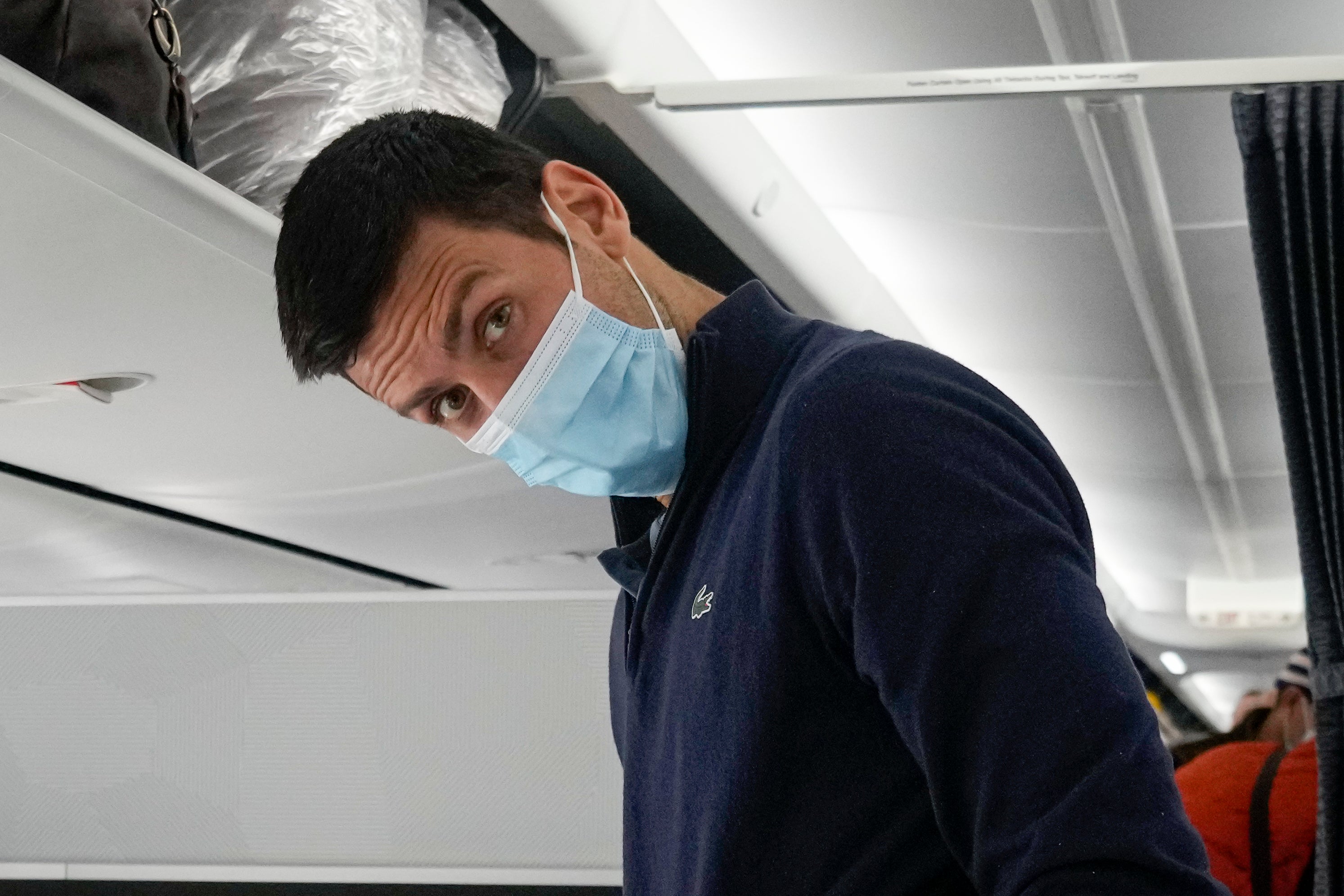Judges didn't consider 'wisdom' of deporting Novak Djokovic
Three Australian Federal Court judges have revealed their reasons for backing a government order to deport tennis star Novak Djokovic, explaining they did not consider the “merits or wisdom of the decision.”

Your support helps us to tell the story
From reproductive rights to climate change to Big Tech, The Independent is on the ground when the story is developing. Whether it's investigating the financials of Elon Musk's pro-Trump PAC or producing our latest documentary, 'The A Word', which shines a light on the American women fighting for reproductive rights, we know how important it is to parse out the facts from the messaging.
At such a critical moment in US history, we need reporters on the ground. Your donation allows us to keep sending journalists to speak to both sides of the story.
The Independent is trusted by Americans across the entire political spectrum. And unlike many other quality news outlets, we choose not to lock Americans out of our reporting and analysis with paywalls. We believe quality journalism should be available to everyone, paid for by those who can afford it.
Your support makes all the difference.Three Australian Federal Court judges on Thursday revealed their reasons for backing a government order to deport tennis star Novak Djokovic explaining they did not consider the “merits or wisdom of the decision.”
The judges on Sunday unanimously endorsed Immigration Minister Alex Hawke’s decision to deport the 34-year-old Serb following an urgent court challenge on the eve of what was to be Djokovic’s first match in defense of his Australian Open title. Djokovic accepted the verdict and flew from Melbourne to the United Arab Emirates hours later.
Chief Justice James Allsop and Justices James Besanko and David O’Callaghan on Thursday released a 27-page explanation of why they rejected Djokovic’s challenge.
“The court does not consider the merits or wisdom of the decision,” the judges said. “The task of the court is to rule upon the lawfulness or legality of the decision.”
"Another person in the position of the minister may have not cancelled Mr. Djokovic’s visa. The minister did,” they added.
Djokovic had his visa revoked at Melbourne’s airport on Jan. 6 hours after arriving because he wasn’t vaccinated against COVID-19. A judge later found that the border officer’s decision to cancel the visa was legally unreasonable and restored it.
But Hawke used his sweeping discretion under the Immigration Act to cancel the visa again on Friday on the broad ground of public interest.
Djokovic was a “high profile unvaccinated individual” whose presence in Melbourne “may foster anti-vaccination sentiment” and increase pressure on the health system, Hawke said in his 10-page decision to revoke the visa.
Hawke had rejected Djokovic’s arguments that his deportation would appear to be “politically motivated decision-making” that could jeopardize Australia's role as host of the first Grand Slam of the year.
Many argue the government deported Djokovic in response to public anger that an unvaccinated athlete had been allowed into the country without undergoing quarantine, even as the omicron variant strains hospitals, home COVID-19 tests are in short supply and Australians' relatives overseas are barred from visiting because authorities don't recognize their types of vaccines.
The judges rejected Djokovic’s three grounds of appeal. The first was that the decision was illogical, irrational or unreasonable. The second was that the minister could not find that Djokovic’s presence in Australia may be a risk to health or good order. The third was that the minister could not find Djokovic had a well known stance opposed to vaccination.
“It was open to infer that it was perceived by the public that Mr. Djokovic was not in favor of vaccinations,” the judges said.
Djokovic, who returned to Serbia, is in talks with lawyers about suing the Australian government for £3.2million ($4.4 million) for “ill treatment,” the London-based The Sun newspaper reported, citing an unnamed source close to his agent Edoardo Artladi.
John Karantzis, a partner in Australian firm Carbone Lawyers, said Djokovic could have a case.
“If he concentrates on the ... unreasonable actions he would allege towards him, and not on policy grounds, he may succeed,” Karantzis told Seven Network television.
_____
McGuirk reported from Canberra, Australia.